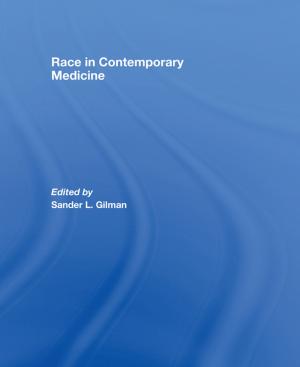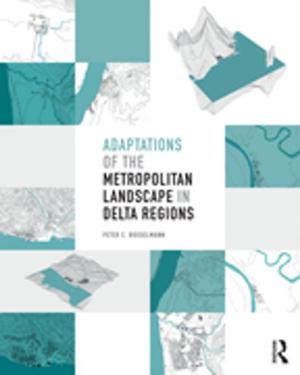Law, Ethics and the Biopolitical
Nonfiction, Reference & Language, Law, Jurisprudence, International| Author: | Amy Swiffen | ISBN: | 9781136851674 |
| Publisher: | Taylor and Francis | Publication: | December 13, 2010 |
| Imprint: | Routledge | Language: | English |
| Author: | Amy Swiffen |
| ISBN: | 9781136851674 |
| Publisher: | Taylor and Francis |
| Publication: | December 13, 2010 |
| Imprint: | Routledge |
| Language: | English |
Law, Ethics and the Biopolitical explores the idea that legal authority is no longer related to national sovereignty, but to the ‘moral’ attempt to nurture life. The book argues that whilst the relationship between law and ethics has long been a central concern in legal studies, it is now the relationship between law and life that is becoming crucial. The waning legitimacy of conventional conceptions of sovereignty is signalled the renewal of a version of natural law, evident in discourses of human rights, that de-emphasises the role of a divine law-giver in favour of an Aristotelian conception of the natural purpose of life and the ‘common good’. Synthesising elements of legal scholarship on sovereignty, theories of biopolitics and biopower, as well as recent developments in the domains of ethics, Amy Swiffen examines the invocation of ‘life’ as a foundation for legal authority. The book documents the connection between law, life and contemporary forms of biopolitical power by critically analysing the fundamental principles of the bioethical paradigm. Unique in its critical and cross-disciplinary approach, Law, Ethics and the Biopolitical will be of interest to students and teachers in the areas of law and society, law and literature, critical legal studies, social theory, bioethics, psychoanalysis, and biopolitics.
Law, Ethics and the Biopolitical explores the idea that legal authority is no longer related to national sovereignty, but to the ‘moral’ attempt to nurture life. The book argues that whilst the relationship between law and ethics has long been a central concern in legal studies, it is now the relationship between law and life that is becoming crucial. The waning legitimacy of conventional conceptions of sovereignty is signalled the renewal of a version of natural law, evident in discourses of human rights, that de-emphasises the role of a divine law-giver in favour of an Aristotelian conception of the natural purpose of life and the ‘common good’. Synthesising elements of legal scholarship on sovereignty, theories of biopolitics and biopower, as well as recent developments in the domains of ethics, Amy Swiffen examines the invocation of ‘life’ as a foundation for legal authority. The book documents the connection between law, life and contemporary forms of biopolitical power by critically analysing the fundamental principles of the bioethical paradigm. Unique in its critical and cross-disciplinary approach, Law, Ethics and the Biopolitical will be of interest to students and teachers in the areas of law and society, law and literature, critical legal studies, social theory, bioethics, psychoanalysis, and biopolitics.















